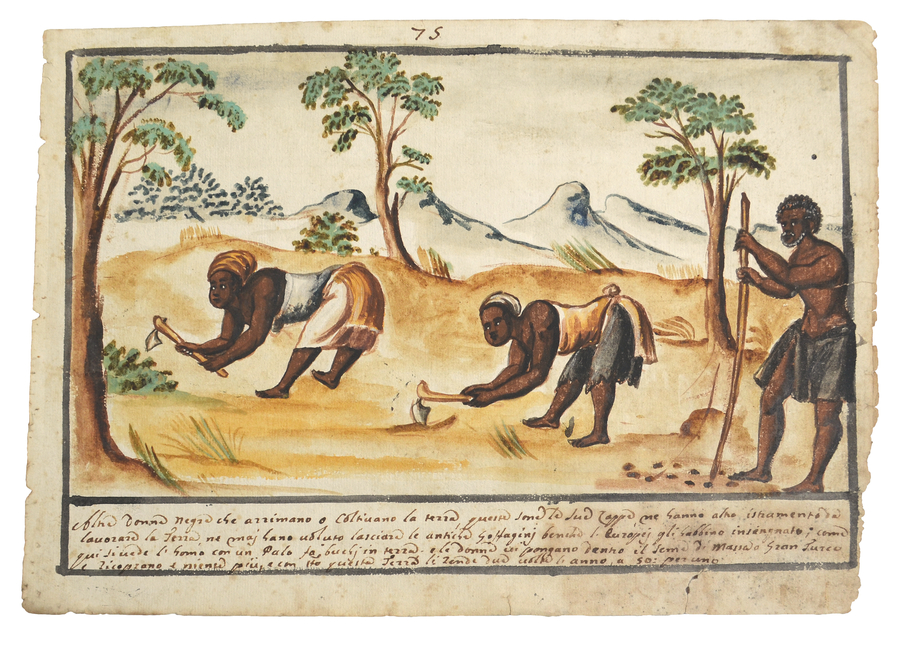PW075: Other black women who . . . cultivate the land
Altre donne negre que arrimano1 o coltivano la terra, queste sone [sic] le sue zappe, ne hanno altro istrumento da lavorare la Terra, ne mai hano voluto lasciare le antiche goffagini benche I’Europei gli habbino insengnato; come qui si vede l’homo con un Palo fa I buchi in terra; e le donne vi pongano dentre le seme di massa2 o Gran Turco e ricoprano e niente più, e cosi t[u]tto questa Terra li rende due volte l’anno, a 50: per uno
Other black women who take care and cultivate the land, these are their hoes, they [do not] have other instruments to work the land and they have never wanted to leave behind the ancient ineptitudes even though Europeans have taught them; as can been seen here the man makes holes in the ground with a stick; and the women put in it the seed of maize or corn and cover it up and nothing more; and overall this land gives them a crop twice a year, at 50 to one.

Add new comment